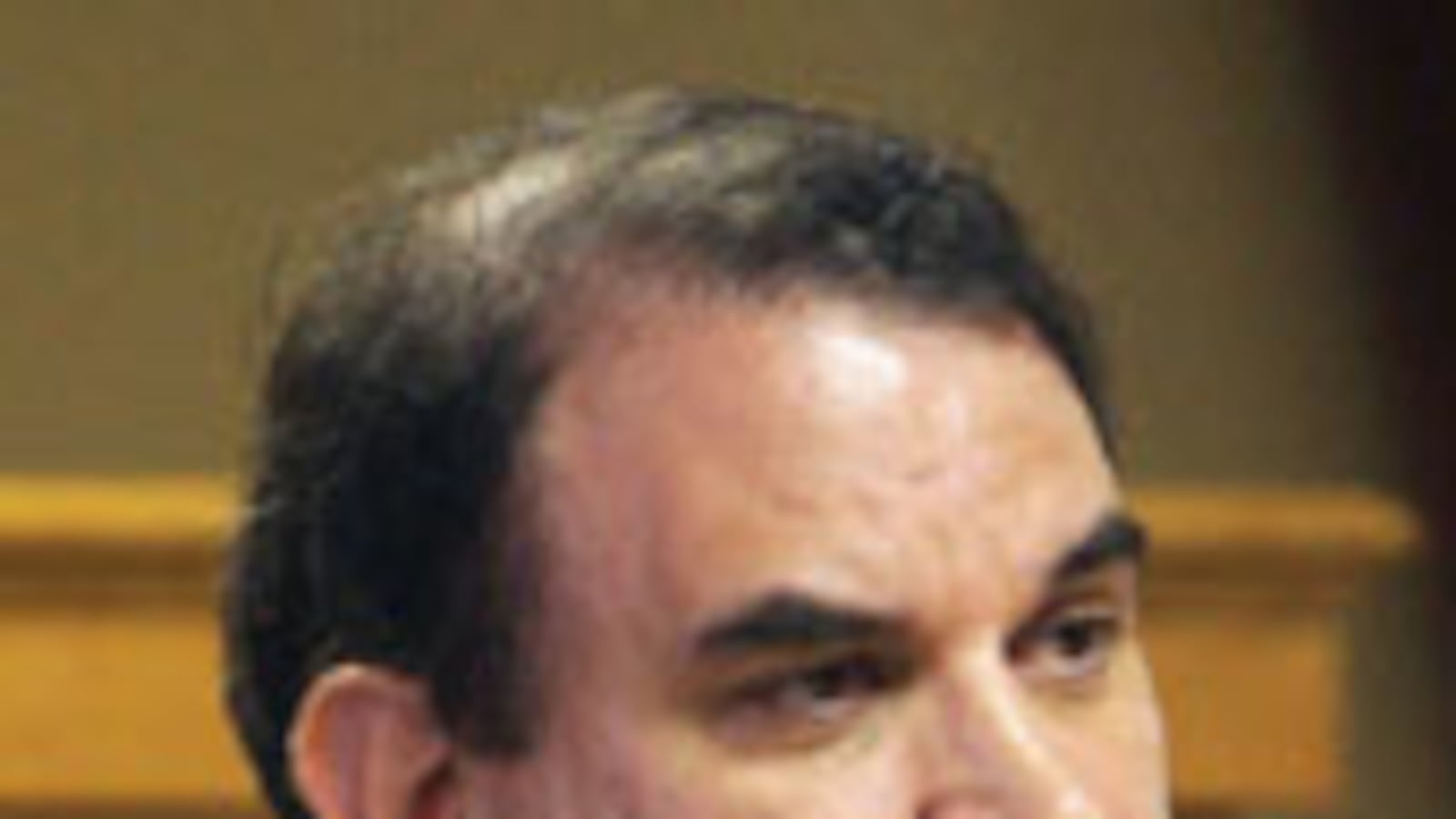
It was a rare act of bipartisanship in a bitter political season: a proposal originated by two of the House's most vilified members and the Senate's lone socialist to audit the Federal Reserve picked up unanimous support in the Senate on Tuesday morning.
The amendment by Senator Bernie Sanders (I-VT), the Senate's lone self-described socialist, gives Congress unprecedented access into the Fed's dealings, including detailed information on the recipients and terms of more than $2 trillion in emergency loans lent out to banks during the financial crisis. While the White House fiercely opposed the original legislation, the administration capitulated to a compromise version that allows the audit to investigate only actions from December 2007 on—and bars the Government Accountability Office, which will carry out the audit, from looking into how the Fed sets discount and interest rates.
Sanders' amendment is similar to one that already passed in the House with a strong bipartisan majority. That amendment was championed by Representative Alan Grayson (D-FL), the freshman congressman made famous after declaring Republicans' health-care plan called for Americans to "die quickly," and Representative Ron Paul (R-TX), the quirky libertarian who developed a cult following during his 2008 presidential run but drew brutal attacks from mainstream Republicans for his anti-war views. Both have announced their support for the modified version of their proposal in the Senate that passed Tuesday.
"If the Fed decided to give a billion dollars to the Dick Cheney Savings and Loan, whose only asset consists of a numbered bank account in Switzerland, you and I wouldn't know it."
"I honestly think we made it happen," Grayson, ever modest, said of the efforts he and Paul made in support of the bill, in an interview before the Senate amendment passed. "I realized when I got elected that Dr. Paul was right and what the Fed was doing was exercising enormous power without accountability...I think that now, in the same way the libertarians have understood this for a generation, progressives understand it as well."
Paul, an anti-Fed radical, has been pursuing an audit for decades. But Grayson said action is particularly necessary now because the institution's role has been so transformed by the financial crisis. Whereas before the Fed's chief means of regulating the money supply—its core responsibility—involved issuing and purchasing bonds on the open market, the 2008 meltdown entailed a host of new actions, including buying up $1.25 million of mortgage-backed securities, and doling out a reported $2 trillion in emergency loans to unknown recipients. Unlike the $700 billion TARP bailout authorized by Congress, which included provisions for public oversight, the Fed's actions remain shrouded in mystery.
"In the past two years the Fed has completely upended the manner in which it's done business," Grayson said. "It's making arbitrary decisions, not marketplace decisions, with counterparties of its own choosing. The example I always give is that if the Fed decided to give a billion dollars to the Dick Cheney Savings and Loan, whose only asset consists of a numbered bank account in Switzerland, you and I wouldn't know it."
But critics say that the proposal could have unintended consequences. The Huffington Post reported that the Fed had lobbied senators to stop the amendment in its original form, warning that the measure could inject politics into its independent monetary policy-making—an affront to an institution designed to withstand short-term electoral pressures in favor of long-term economic goals. A number of economists, such as Yale's Robert Shiller, have suggested that it could be a stalking horse for future encroachment on the Fed's operations—not an entirely unfounded worry, given that Paul has written a book titled End The Fed. In addition, banks that are found to have received loans from the Fed could be stigmatized, jeopardizing their recovery.
Grayson said he doesn't buy it, noting that both the measure he co-sponsored with Paul and Sanders' Senate version include provisions specifically excluding monetary policy from interference and allowing the Fed to keep transcripts and minutes from its meetings confidential.
"You could say you want to count the pencils in their office and they'll say you're interfering with the money supply," he said. "It's the same answer every time: It makes no sense, it's never been true, it's not true now, and it's a red herring."
For those worried that the sudden outbreak of bipartisanship might temper Grayon's infamous bomb-throwing tendencies, fear not. According to The Wall Street Journal, the White House had worked to stop the original Fed amendment "at all costs," setting up a major potential showdown before they caved to the revised bill. Grayson said he attributed the administration's opposition to Treasury Secretary Timothy Geithner—who he claims is afraid of having to disclose actions he took as president of the Federal Reserve Bank of New York. Last week in The Hill a Treasury spokesman dismissed that as "absolutely ridiculous."
Benjamin Sarlin is Washington correspondent for The Daily Beast. He previously covered New York City politics for The New York Sun and has worked for talkingpointsmemo.com.






